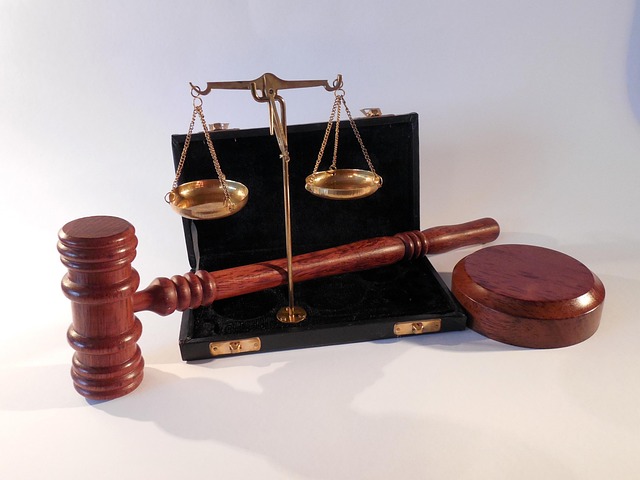Criminal defense attorneys specialize in protecting individuals from criminal charges by strategically navigating complex laws and processes. They handle a range of cases, including those with stringent Class Action Lawsuit (CAL) eligibility requirements. CALs are powerful tools for collective legal action against entities causing harm to many, with clear eligibility criteria ensuring legitimate claims. These suits involve groups with similar experiences or circumstances, such as consumer fraud or environmental damage. Navigating CAL requirements requires understanding the offense type, affected individuals, and financial impact. While jury trials are involved, the ultimate goal is to establish precedents and hold wrongdoers accountable for widespread harm.
“Uncover the pivotal role of criminal defense attorneys in navigating complex legal landscapes. This article delves into their expertise, focusing on a powerful tool for justice: class action lawsuits. We explore who can file, with an emphasis on eligibility criteria and process steps.
Learn about the misconceptions surrounding these lawsuits, especially when intertwined with criminal defense. By understanding these dynamics, individuals can make informed decisions, ensuring they seek the right legal aid for their rights and interests.”
- Understanding Criminal Defense Attorneys: Their Role and Expertise
- Who Can File a Class Action Lawsuit: Eligibility Criteria
- Navigating the Process: Steps to Determine Eligibility
- Common Misconceptions About Class Action Lawsuits and Criminal Defense
Understanding Criminal Defense Attorneys: Their Role and Expertise

Criminal Defense Attorneys are legal professionals who specialize in defending individuals against criminal charges. Their role is multifaceted, encompassing a deep understanding of the law and its complexities. These attorneys navigate intricate legal processes, ensuring their clients receive fair treatment within the justice system. They are equipped to handle a wide range of cases, from minor misdemeanors to complex felonies, including those involving Class Action Lawsuits where eligibility requirements can be stringent.
Their expertise lies in challenging prosecution evidence, examining witness testimonies, and leveraging legal loopholes to achieve favorable outcomes. Across the country, Criminal Defense Attorneys are renowned for their unwavering commitment and unprecedented track record in winning challenging defense verdicts. Their adeptness in navigating legal intricacies makes them invaluable assets to those facing criminal accusations.
Who Can File a Class Action Lawsuit: Eligibility Criteria

A Class Action Lawsuit is a powerful tool when it comes to holding accountable entities responsible for harm caused to a large number of individuals. But who can file such a lawsuit? The eligibility criteria are clear and specific, ensuring that only those with legitimate claims can pursue this collective legal action. Typically, a class action involves a group of plaintiffs with similar experiences or circumstances who have been affected by the same adverse event or conduct. This could include instances of consumer fraud, employment discrimination, environmental damage, or any situation where a single entity has wronged multiple parties.
To be eligible to file a Class Action Lawsuit, individuals must meet certain requirements. These usually encompass factors such as the extent of harm suffered, the commonality of legal issues among plaintiffs, and the potential for similar cases to arise in the future. For his clients seeking justice in high-stakes cases, understanding these eligibility requirements is crucial. Moreover, the ability to bring a class action can extend beyond financial compensation; it often sparks awareness, promotes change, and has significant impacts on philanthropic and political communities affected by the initial misconduct.
Navigating the Process: Steps to Determine Eligibility

Navigating the legal process for a Class Action Lawsuit involves understanding specific eligibility requirements. This is crucial, especially when dealing with complex cases such as white collar and economic crimes, which often fall under high-stakes categories. The first step is to assess if your case aligns with the definitional criteria set forth by relevant laws and regulations. This includes evaluating the nature of the alleged offense, the number of affected individuals, and the potential financial impact.
At each stage of the investigative and enforcement process, it’s vital to ensure that all eligibility conditions are met. This may involve gathering substantial evidence, constructing a solid legal argument, and demonstrating a clear pattern or scheme of wrongdoing. By meticulously following these steps, attorneys can help their clients determine their options and make informed decisions regarding participation in class action lawsuits.
Common Misconceptions About Class Action Lawsuits and Criminal Defense

Many people hold misconceptions about class action lawsuits, often mixing up their understanding with that of criminal defense. A common mistake is assuming that all plaintiffs in a class action lawsuit share identical outcomes, but this isn’t true. Each individual’s circumstances are considered, and compensation varies based on unique factors. Additionally, there’s a belief that these suits are solely for significant financial gains, yet many involve seeking justice and rectifying wrongs, which may not always translate to monetary rewards.
Another aspect often overlooked is the eligibility requirements for class action lawsuits. Unlike criminal cases, where guilt or innocence prevails, these lawsuits focus on collective harm and require a demonstration of shared experiences. This often involves high-stakes cases that resonate with both the philanthropic and political communities due to their potential impact on societal changes. While jury trials are a part of the process, it’s crucial to understand that class action lawsuits are about more than just winning individual jury trials; they aim to create precedents and ensure accountability for wrongdoings affecting large groups.
Criminal defense attorneys play a crucial role in protecting individuals’ rights, especially in complex cases involving class action lawsuits. Understanding eligibility criteria for such lawsuits is essential for those seeking justice. By navigating the process and dispelling common misconceptions, individuals can make informed decisions and take advantage of their legal rights, ensuring a fair and just outcome. When considering a class action lawsuit, it’s vital to consult with experienced legal professionals who can guide you through the intricacies of this powerful legal tool.






